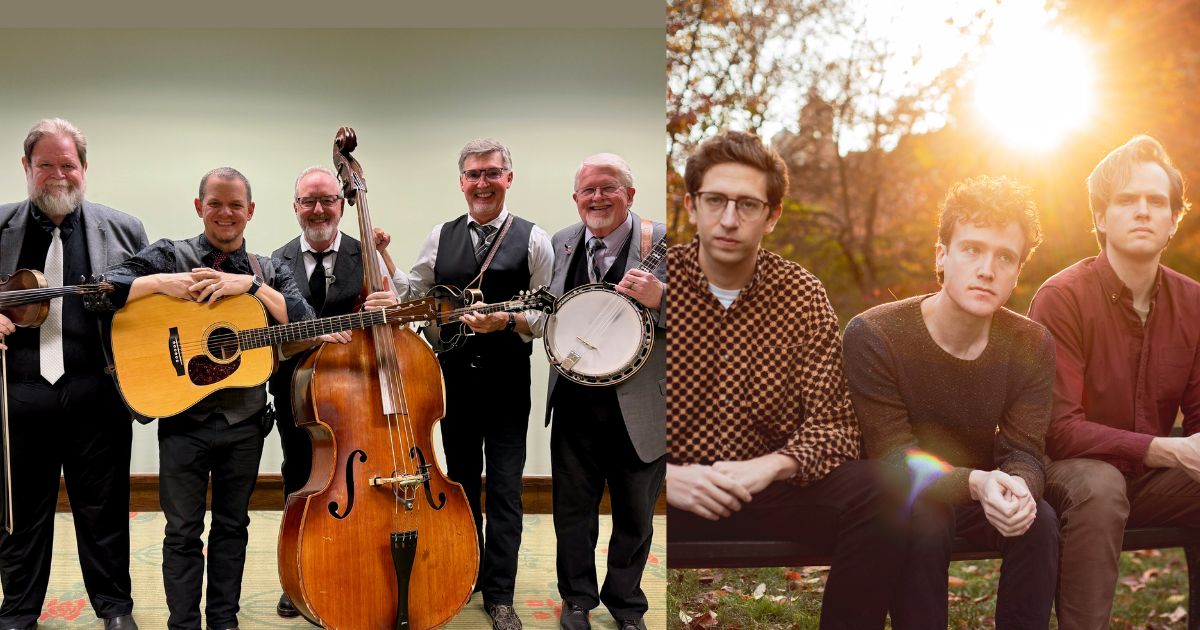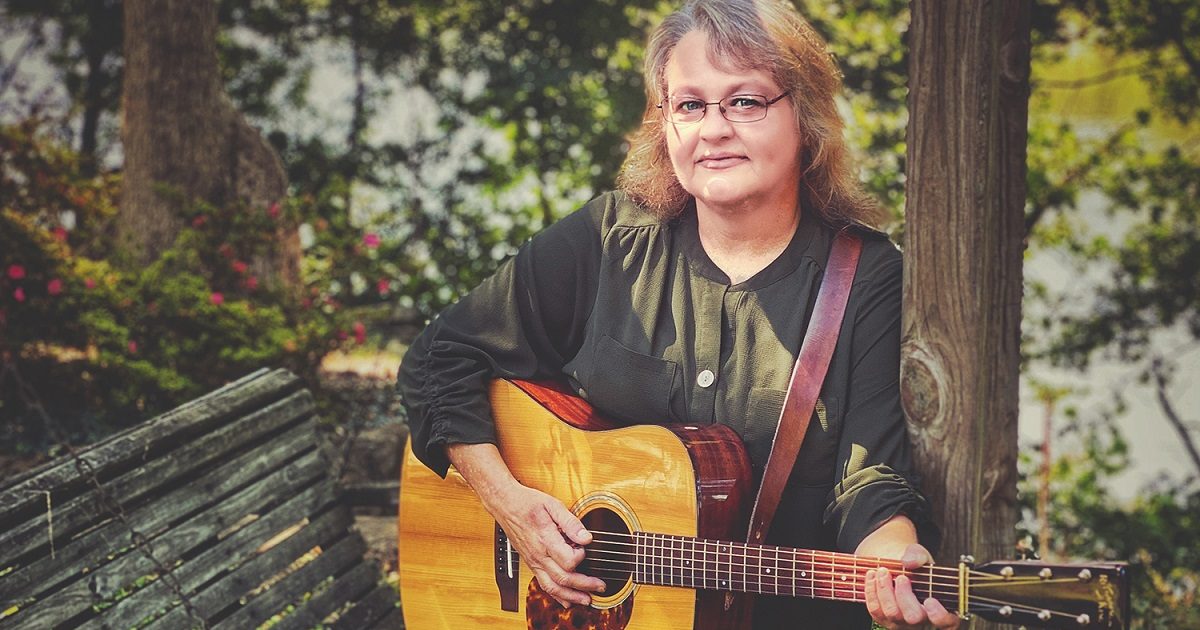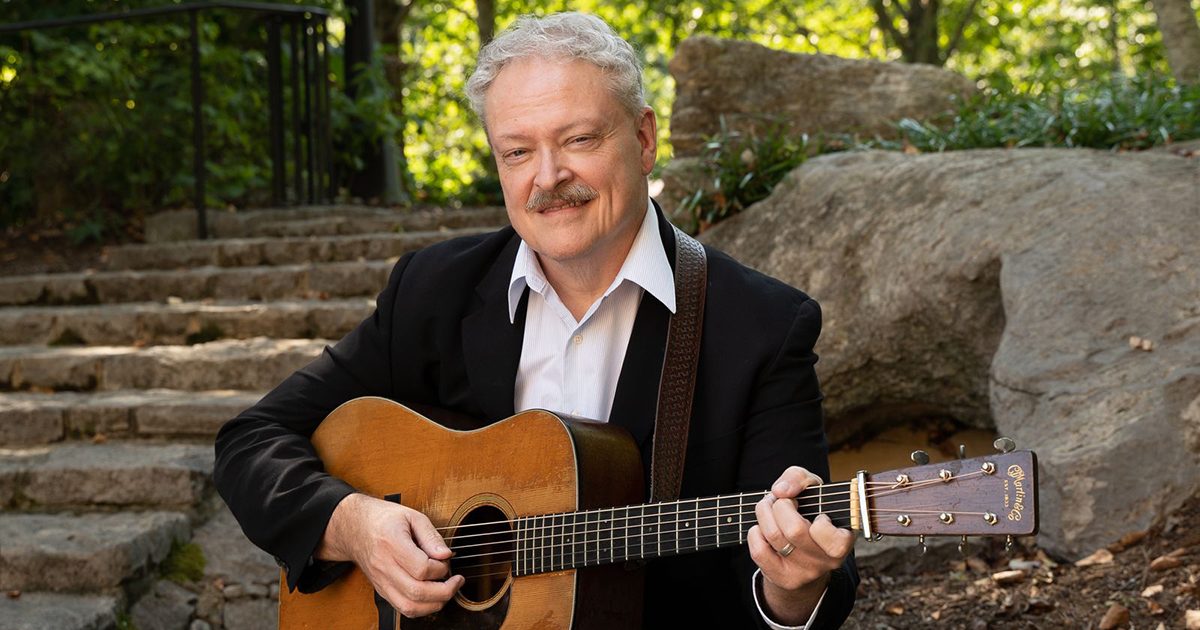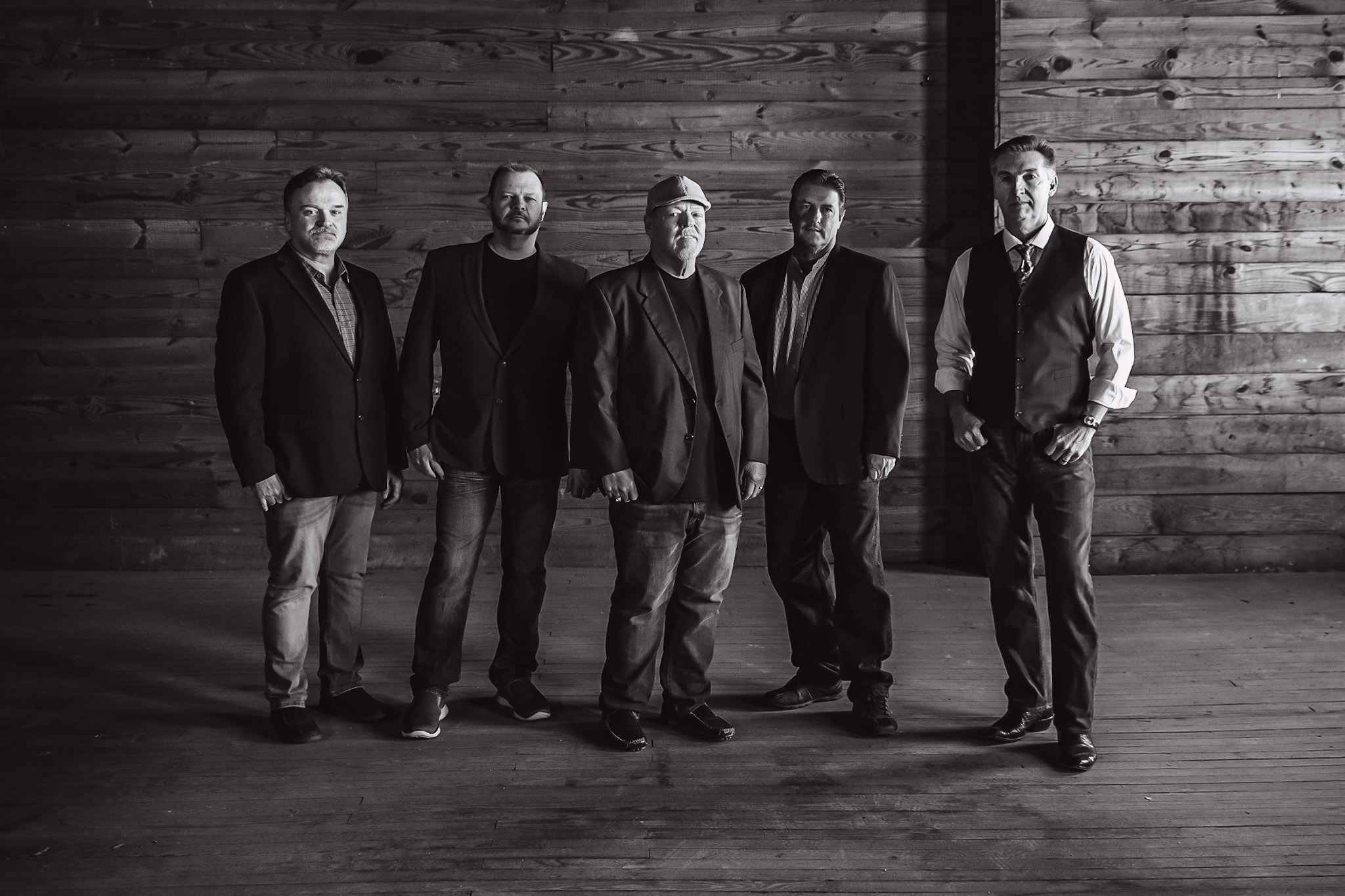The last Friday of March brings a weekly new music roundup that includes bluegrass, folk, Americana, and more!
Kicking us off, Boston-based Autumn Hollow have a new single, “After All of This Is Gone,” a jangly, deep-pocketed rocker that reflects on the new reality we all find ourselves living in – or perhaps coping with through abject denial – after the COVID pandemic. Bold Forbes also unveil the first half of an A Side/B Side single release, “Make Away,” a song that’s string band and folk revival combined, but in a twangy, modern sonic package.
Blue Cactus call on their friends Brit Taylor and Russ Pahl for “Bite My Tongue,” a track and accompanying music video that takes on inequalities, patriarchy, and injustice (with a danceable groove!). Susto Stringband also bring us a video on their album release day, “Double Crown.” It’s got an old-timey line up of instruments, but a decidedly pop sensibility, and it celebrates community – that is, their favorite neighborhood honky-tonk haunt in Asheville, the eponymous Double Crown.
We’ve got plenty of bluegrass herein, as well. Jaelee Roberts has a brand new single, which was co-written by two of her mentors, Tim Stafford and the late Steve Gulley. “Heavy As A Stone In Her Heart” floored Roberts with its lyrics and raw emotion and she just knew she had to cut it. Kristy Cox has a brand new music video for her new single, too, which features John Meador – who recently announced his departure from Authentic Unlimited to perform in Vince Gill’s touring band. Cox and Meador team up to great success on “In My Dreams,” which of course includes plenty of dreamy harmonies. Don’t miss North Carolina powerhouses Balsam Range with a new track, as well. “When It Comes to Loving You” was written by Daniel Salyer and Jeff McClellan, features Don Rigsby, and is built around Balsam’s classic, driving sound.
There’s plenty of excellent roots music to enjoy. You Gotta Hear This!
Autumn Hollow, “After All of This Is Gone”
Artist: Autumn Hollow
Hometown: Boston, Massachusetts
Song: “After All of This Is Gone”
Album: Say No More
Release Date: March 28, 2025 (single); May 2, 2025 (album)
In Their Words: “‘After All of This Is Gone’ reflects on the lingering impact of the pandemic and the rush to return to normal. As a teacher who returned to in-person work early, I saw how quickly the conversation shifted away from what we had all been through. There was little acknowledgment of the lasting changes – only an expectation to move forward. This song serves as a reminder that the effects of that time didn’t simply disappear and that it’s important to recognize how they continue to shape us.” – Brendan Murphy
Balsam Range, “When It Comes To Loving You”
Artist: Balsam Range
Hometown: Haywood County, North Carolina
Song: “When It Comes to Loving You”
Release Date: March 28, 2025
In Their Words: “The wait is over! From the first time I heard Daniel Salyer’s demo of ‘When It Comes to Loving You,’ I knew it would make a great Balsam Range song and I believe it has! It’s our first new single since the release of our last album, Kinetic Tone, in December 2023, and I couldn’t be more excited for music fans to hear it. With a cool groove and lyrics that are so well put together, I truly hope you all enjoy it as much as we do creating it. Me, Tim, Marc, and Alan are so excited to be joined by the great Don Rigsby on tenor vocal and fiddle. There will be no mistaking when you hear his powerful voice. Thanks to Daniel Salyer and Jeff McClellan for a great song!” – Caleb Smith
Track Credits:
Caleb Smith – Acoustic guitar, lead vocal
Tim Surrett – Bass, harmony vocal
Marc Pruett – Banjo
Don Rigsby – Fiddle, harmony vocal
Alan Bibey – Mandolin
Bold Forbes, “Make Away”
Artist: Bold Forbes
Hometown: New York City, New York
Song: “Make Away”
Release Date: March 27, 2025
In Their Words: “I wrote ‘Make Away’ after a dinner party I attended in Austin, Texas, some years back. I left the party feeling like ‘this is why one stays alive,’ but also I somehow mistrusted this feeling. What kinds of lives and labor went into producing the food we ate that night, how fragile was the peace that allowed us to meet so joyously and cavalierly, and how long would it last?
“I traveled to the central valley of California on a road trip the summer before – where so much of that night’s food came from – and the rows and rows of crops seem to stretch forever in all directions away from you on that flat, hot road. Billboards line the highway with propaganda advertisements from the farm owners lobbying for more water from the state, with photographs of ‘family farmers’ – inevitably blond, white, crisp-collared people. Of course, very few of the thousands of workers working the rows of crops fit that description: people being criminally underpaid for doing the hardest work in the country and then being rhetorically savaged every day by this country’s citizens who profit and benefit from this work.
“What does it mean to take pleasure in the daily indulgences of life in a society organized in this way? Could the daily sweetness of life ever merge with the struggle for a better, more just world? ‘Make Away’ is a song that prays for an answer to these questions.” – Nick Bloom
Track Credits:
Nick Bloom – Rhythm guitar, lead vocals, songwriter
Reid Jenkins – Fiddle, vocals
David Halpern – Bass, vocals, guitar
Blue Cactus, “Bite My Tongue”
Artist: Blue Cactus
Hometown: Chapel Hill, North Carolina
Song: “Bite My Tongue”
Album: Believer
Release Date: April 25, 2025
Label: Sleepy Cat Records
In Their Words: “‘Bite My Tongue’ is a call to continue raising our voices and speaking out against injustice until we are finally heard. While we’ve certainly made progress, the fight for equality is far from over. What I will say, and what this song is ultimately saying, is that the power has always been and will always be with the people; if it didn’t, they wouldn’t be trying to ban protests. Special thanks to Brit Taylor for singing with us on this song and to Russ Pahl for the guitar duet Mario’s always dreamed of.” – Steph Stewart
Track Credits:
Steph Stewart – Vocals, acoustic guitar, songwriter
Mario Arnez – Vocals, electric guitar
Brit Taylor – Vocals
Whit Wright – Pedal steel, producer
Russ Pahl – Electric guitar
Jonathan Beam – Bass
Ryan Connors – Keys
Taylor Floreth – Drums, percussion
Kristy Cox, “In My Dreams” (Featuring John Meador)
Artist: Kristy Cox
Hometown: Nashville, Tennessee, by way of Adelaide, Australia
Song: “In My Dreams” (feat. John Meador)
Album: Let It Burn
Release Date: May 31, 2024
Label: Billy Blue Records
In Their Words: “I’m excited to release this new song and video with my friend John Meador for our song, ‘In My Dreams.’ I had a lot of fun writing and recording this track and love where Steve Kinney took the concept for the video.” – Kristy Cox
Jaelee Roberts, “Heavy As A Stone In Her Heart”
Artist: Jaelee Roberts
Hometown: Nashville, Tennessee
Song: “Heavy As A Stone In Her Heart”
Release Date: March 28, 2025
In Their Words: “The first time I heard the demo of ‘Heavy As A Stone in Her Heart’ I was absolutely floored by the lyrics, melody, and raw emotion and knew without a doubt that I had to record it. Slow, sad songs that tell a story always speak to me most and this one absolutely stole my heart and broke it, too. ‘Heavy As A Stone in Her Heart’ is extra special to me because it was written by two of my favorite songwriters and singers that are also my mentors – Tim Stafford and Steve Gulley. I have looked up to Tim and Steve my entire life and I feel so grateful that this song made its way to me! ‘Heavy As A Stone In Her Heart’ came together so beautifully in the studio with a very stripped-down arrangement and without harmony vocals with the intention of focusing on the depth and feeling of the lyrics and I hope that it resonates with all of you the way it does with me. I so wish that Steve was still here with us but I know he’s listening from Heaven and this song is dedicated to him and his musical legacy.” – Jaelee Roberts
“I’m so glad that Jaelee Roberts is releasing ‘Heavy As A Stone In Her Heart’! Steve Gulley and I wrote this song back in 2007 and I know Steve would be absolutely thrilled at the news and to hear the song done so beautifully. Jaelee is a special talent and I can’t think of anyone who could have done a better job with this song.” – Tim Stafford
Track Credits:
Jaelee Roberts – Vocals
Byron House – Bass
Cody Kilby – Acoustic guitar
Andy Leftwich – Mandolin
John Gardner – Drums
Ron Block – Acoustic guitar
Susto Stringband, “Double Crown”
Artist: Susto Stringband
Hometown: Asheville, North Carolina
Song: “Double Crown”
Album: Susto Stringband: Volume 1
Release Date: March 28, 2025
Label: New West Records
In Their Words: “This song is a tribute to one of our favorite dive bars in Asheville called The Double Crown. When we were living in Asheville, my wife Caroline and I would often go to The Double Crown for Western Wednesdays, where they feature lots of honky-tonk and adjacent genres of music. She’s from Texas, so it was fun for her to get a little slice of home when we’d go there on Wednesday nights to listen to the music, drink Lonestar, and two step a bit.
“One night in particular we were crossing the street to get to Double Crown and we just started making up a song about it. We finished it later on, but to this day the opening lines of this song remind me of crossing the street with her in the moonlight with the music coming from the bar and a bunch of folks (and dogs) crowded outside waiting to get in, or waiting at the window for drinks. The place had such a magical vibe for us that night, and I’m so glad we captured it in a song.
“When we started working on the Susto Stringband album, I showed the tune to Clint (of Holler Choir) and Ryan (our producer) and they figured it would be very fitting to include it on the record, given that the whole project was born in Asheville and the song is not only a tribute to the double crown, but the whole scene Caroline and I found ourselves in when we lived there.” – Justin Osborne, Susto Stringband
“Justin really captures the essence of our local favorite bar, The Double Crown, in its truest form with this song, in my opinion. Western Wednesday is hosted there each week and has become an Asheville cultural staple. The images referenced in the lyrics –two-stepping and romances, both fleeting and permanent – are vivid and very real. The sweetness of the melody pairs perfectly with the sentiments I feel about this bar. I’m very proud to be a part of this representation of a time and place that holds so much personal relevance for me.” – Clint Roberts, Holler Choir
Photo Credit: Balsam Range courtesy of the artist; Bold Forbes by Julia Discenza.



